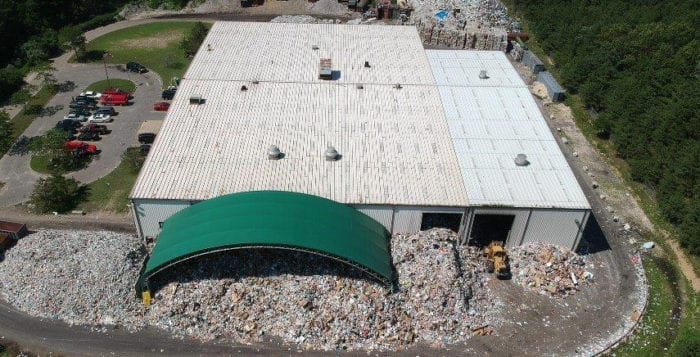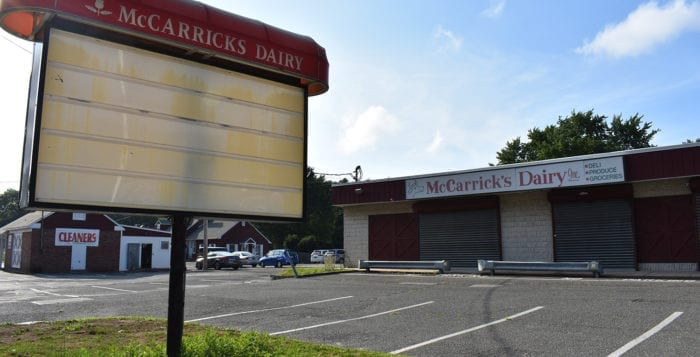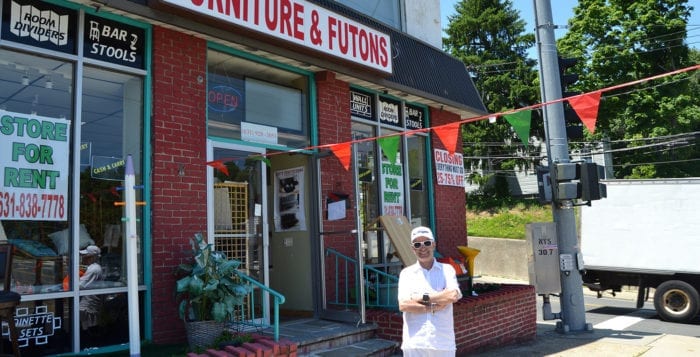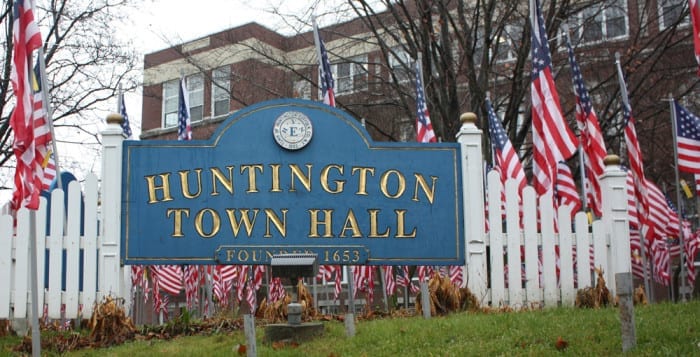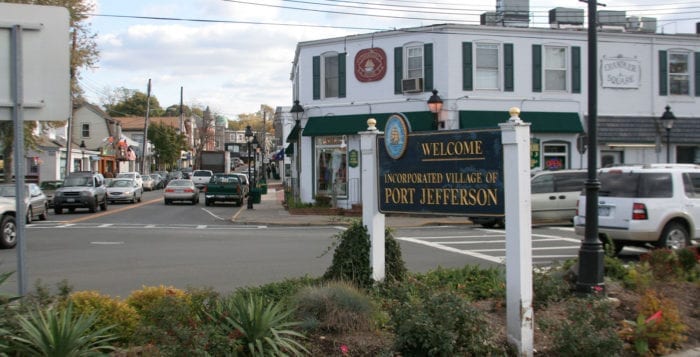It’s a rubbish time to be involved in the recycling industry.
The Town of Brookhaven’s recycling plant is grappling with unprecedented mounds of bottles, used paper goods and trash. Ever since China implemented its “National Sword” policy in January banning the import of various nonindustrial plastics, paper and other solid wastes, Brookhaven’s had a hard time selling off collected recyclable materials. As China was one of the top buyers of U.S. recyclables according to NPR, this move has left many Suffolk townships unsure what to do with their residents’ recycled garbage.
To recycle or not: Tips on handling your trash
By Kyle Barr
Operators of the Brookhaven recycling plant deal with a lot of junk. Not the good kind of junk, however, as many household items that residents assume can be recycled can cause havoc in the machinery.
In the four years since the town invested in single-stream recycling, Erich Weltsek, a recycling coordination aid for Brookhaven, said there has been increased resident participation in the recycling program. But it has also led to some residents chucking in items that have no business being recycled.
“We’ve gotten chunks of concrete, and you even get sports balls — like soccer balls, footballs — constantly,” he said. “A lot of what we call ‘wish cycling,’ where people think they’re doing the right thing and when in doubt they throw it in a recycle bin instead of the right receptacle.”
Weltsek said people have tried to recycle Coleman outdoor stoves and propane tanks, which is extremely dangerous and could result in an explosion at the facility.
The most pervasively disruptive items are plastic bags and other items that Weltsek called “tanglers,” such as Christmas tree lights, pool liners and garden hoses. The recycling facility operates on a number of conveyor belts that first feed into a device called a star screen, a number of rotating cylinders with feet that separate recyclable fibers from other items. These items either wrap around the wheels on the conveyor belt or star screen, either letting fibers through the wrong end or stopping the machine entirely.
Suffolk residents should clean out any plastic bottles or cans before putting them in the recycling. Any low-quality paper products or grease-stained cardboard such as used pizza boxes, should not be recycled because they affect the sellable quality of the entire recycling bundle.
Andrade said all plastic bags should be recycled at a local supermarket, which are mandated by New York State law to have a receptacle for all shopping bags.
The plant often has to turn away other nonrecyclable material, such as plastic utensils, bottle caps and Styrofoam. All of these are considered contaminants, either because they cannot be recycled properly, or they
dilute the quality of the material.
“While it hasn’t stopped it, China’s new policies have significantly slowed down the ability of recyclers to move material to market,” said Christopher Andrade, commissioner of Brookhaven Town’s waste management department. “There are domestic mills and domestic markets [but] the thing is just finding them, negotiating them and moving the material.”
That is easier said than done, according to Andrade, as many recycling plants across the nation now have fewer options of where to sell their collected goods. China has publicly claimed the decision has to do with the quality of the materials, as low-quality newspaper print or thin PVC plastics are not considered valuable enough for reuse. There’s also the problem of recyclables being mixed with other, nonreusable garbage.
In 2014, Brookhaven moved from dual-stream to single-stream recycling, a system that allows residents to put out all their recyclables in a single can to be sorted out at the town’s facilities instead of bringing out a different material — plastic, papers or metal — every other week. This increased overall participation in the recycling program, Andrade said, but has led to some confusion.
The loss of the Chinese market has severely interrupted the Brookhaven-owned Green Stream Recycling facility’s outflow. Green Stream Recycling LLC, a company that contracts with the town and operates the town’s facility in Yaphank, made good use of China’s market. While the facility continues to operate without a definitive answer to where else the company can move its materials, some of it is now going back into the landfill, according to Andrade.
This crisis is not only affecting the Town of Brookhaven, but other municipalities on Long Island which sell their collected recyclables to Suffolk County’s largest township. In 2014, the Town of Smithtown formed a five-year contract with Brookhaven to send 12,000 tons of garbage to the Green Stream facility, in return for $180,000 per year. While Brookhaven continues to honor the agreements with its partnered municipalities, the lack of market availability for recyclables has some members of Smithtown Town Board concerned.
At a Sept. 4 work session, Smithtown Supervisor Ed Wehrheim (R) showed board members a photo taken by a drone in May showing recyclables piled in heaps just outside Brookhaven’s facility. The picture made Wehrheim and other board members question what might become of the town’s current recycling agreement.
“At one point, we’re going to come to some decision what to do with [Brookhaven Town,] Wehrheim said. “It could be a potential problem … in the short term.”
Andrade said that excess dumping on the facility’s land came from the “shock” of China’s National Sword policy being implemented earlier this year, though he said the situation has since been brought under control. Despite these international issues, Andrade said Brookhaven remains committed to recycling.
Brookhaven Town Supervisor Ed Romaine (R) “and the board believe very strongly in recycling, and we’ll bounce back from this,” he said.
“The markets are being overwhelmed; the people taking the material can be picky on what they accept. We’re going to have to respond by being better at only putting out the things that people can actually reuse.”
— Russell Barnett
Russell Barnett, Smithtown’s environmental protection director in the Department of Environment and Waterways, said he is working on a solution with Brookhaven, including a regional approach comprising Smithtown, Huntington, Southold and several other communities that are partnered with Brookhaven.
Smithtown had its own dual-stream facility that was closed before it started sending its materials to Brookhaven in 2014, though reopening it could be costly.
“We’re assessing our equipment — seeing what’s operational, what’s not, what repairs need to be made and what upgrades need to be made if the occasion comes up that we want to go that route,” Barnett said.
In the meantime, he said residents need to be more discriminating when it comes to deciding what items to recycle. Otherwise, it will be much harder in the future to find a buyer for the world’s recyclable garbage.
“When they talk about the standard, they’re not just talking about nonrecyclable material
but the right kind of recyclable material.” Barnett said. “The markets are being overwhelmed; the people taking the material can be picky on what they accept. We’re going to have to respond by being better at only putting out the things that people can actually reuse.”

